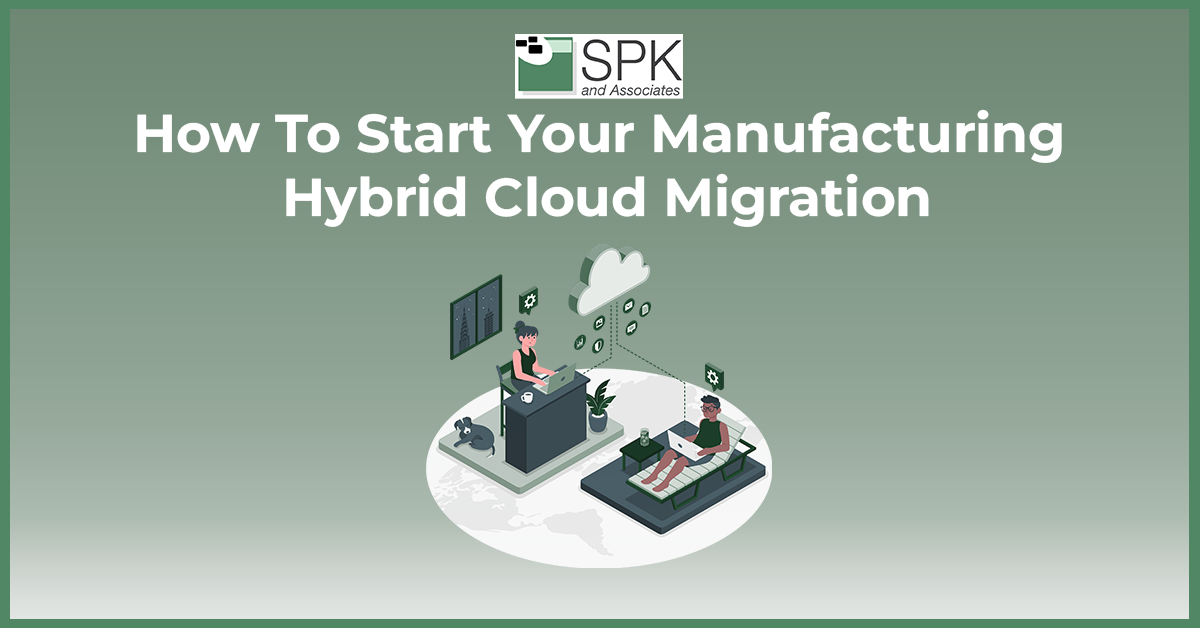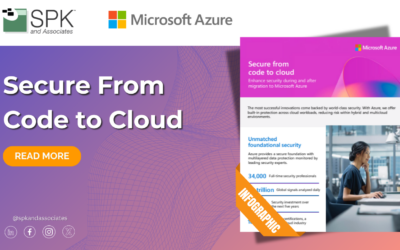How Hybrid Cloud solutions boost manufacturing businesses
Hybrid cloud migration is becoming more and more prominent. Why? Well, the cloud has been proving its worth for years now. In particular, it showed exceptional value, capability and adoption at the peak of the pandemic. The hybrid cloud is easily accessible, frictionless and boosts productivity. For highly regulated industries and manufacturers, a hybrid cloud solution can give you a competitive edge and improve your speed to market.
In 2022, Gartner predicts worldwide IT expenditure is set to increase 4% over 2021 bringing the total estimated spend expected to exceed $4.4 trillion. If you are one of the millions of businesses globally about to invest in a hybrid cloud migration or strategy, you need to ensure your cloud solutions are set up properly for maximum efficacy.
What is “The Cloud”?
The cloud is a network of servers accessible anywhere. Some servers store data, others run applications and processes. Some application providers, such as Adobe, offer their applications as cloud applications (software-as-a-service, or SaaS), meaning you don’t have to install or run them on your servers. Similarly, you can store your information, tools and applications “in the cloud” somewhere off-site, or on-premises, but accessible from anywhere.
What are the different types of cloud computing?
Public cloud definition (i.e. web-based email, AWS Cloud).
This is the most popular and least expensive cloud version. It allows access to data and applications on third-party servers located off-premises. You share assets with other organizations leveraging similar services from the same providers.
Private cloud definition (i.e. Microsoft Azure enterprise cloud)
A private cloud means the network will be just that – private. It’s more flexible than the public cloud and can be customised for your specific business needs and security requirements. Often times this is a “cloud in a box” local network, or a platform as a service (PaaS) hosted on-premises. Teams across the globe have access to the same data and the same information, at the same time.
Hybrid cloud definition
This isn’t really a type of cloud. It’s a methodology to leverage the best public cloud, private cloud, and on-prem solutions. Hybrid cloud migration allows you to decide which workloads to move onto the cloud and when to move them. For example, there’s little need to move legacy systems onto the cloud. Here’s an example of how a hybrid cloud solution could be executed:
- Public cloud handles high-volume, low-security needs.
- Private cloud deals with sensitive data requiring greater levels of security.
- On-premises servers handle certain functions until they can’t. At this point, they could tap on cloud resources for increased power.
What’s the difference between hybrid cloud and multi-cloud?
A hybrid cloud is distinct from a multi-cloud, where one organization leverages two or more cloud providers. However hybrid cloud and multi-cloud solutions can be used together. In fact, two-thirds of all organizations using IaaS/PaaS reported using multi-cloud solutions with nearly half using three or more different cloud providers.
Top 8 hybrid cloud benefits
- Security: When configured properly, a hybrid cloud is more secure than either private cloud or public cloud solutions.
- Cost Savings: Public cloud solutions offer cost savings and do not require capital investment – they are a pay-as-you-go service.
- Agility: Private cloud solutions allow you to securely compete at the same level as your competitors – The public cloud steps in to provide extra bandwidth when you need it, including during product development.
- Continuity: Hybrid cloud solutions allow your organization to stay online during a disaster. No matter what’s happening on-premises, you can still access your data.
- Scalability: You can use your on-premises architecture to handle data you need access to the fastest, and most cloud-based solutions for backup.
- Accessibility: Your employees can access everything in your cloud no matter where they are working from.
- Integration: Many of the applications your organization is already using come with built-in hybrid cloud integration options.
- Innovation: The future of business and engineering applications lies in the cloud. You can test and prototype your own innovations in a hybrid cloud environment with reduced capital expenditure.
Hybrid Cloud Benefits for Automation
Many organizations think basic scripting can automate processes away, but in many cases, simple coding will not be up to the task of automating essential processes. Scripting has its place, but the more complex your systems, the more complex your automation solutions must be. With workload abstraction, you can make reusable templates for any automated project. Once templates are created they can be modified to meet the needs of similar processes.
Offices in different parts of the country need to have access to the same resources at the same time, increasing organizational integration. A hybrid cloud allows you to create business triggers for automation processes taking place at multiple locations at the same time. It can also create automation to segment big data into more manageable pieces for your servers (on-prem and in the cloud).
What’s the best cloud solution for manufacturing businesses?
There’s no one perfect cloud solution that’s going to be right for every organization. But by considering parameters such as mission-critical data, offshoring data, requirements communication, connectivity speed and security requirements, you will be able to identify the best cloud solution for your business. Begin thinking about what data will work better on a private cloud and what belongs on a public cloud.
Manufacturing firms feel the scalability issue far more acutely than other industries. What’s more, cloud portability applies to software as well as hardware. ERP, CRM and other software can be purchased affordably leveraging cloud solutions as a service rather than as a depreciating capital expenditure.
The cloud allows for increased and easier integration for manufacturing enterprises. For example, everything from your supply chain solutions to your warehouse and manufacturing floor IoT devices can be intelligently integrated. You can even achieve this integration with increased security that few organizations are able to pull off without having a robust and experienced IT department. This is attractive for all manufacturing enterprises, especially those in such highly regulated fields as MedTech, aerospace and automotive.
Conclusion
A hybrid cloud is unmistakably a powerful solution nearly every organization can benefit from. Highly regulated industries and manufacturing companies, in particular, can leverage a hybrid cloud to accelerate their business, provide fail-safes in the event of a disaster, and achieve a competitive advantage.
There is not a one-size-fits-all hybrid cloud solution. The best hybrid cloud solution for your business will need to consider particular parameters to ensure you have the optimal hybrid for your business requirements.
If you want to learn more about how manufacturers deploy hybrid cloud solutions, contact us for a free, no-obligation discussion.







